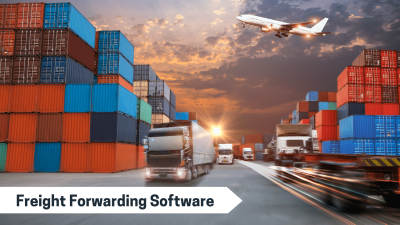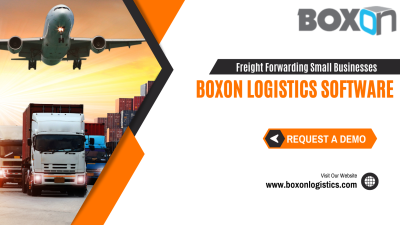When business conditions were more stable, more traditional logistics management software tactics were developed. Supply chain experts may concentrate more on cost savings when business cycles are predictable, and demand is steady rather than on resolving problems. Supply chain experts now need to concentrate more on problem-solving and learning how to handle fluctuating demand, volatility, and interruptions because of all the changes to supply networks.
53% of supply chain executives in a recent Accenture study stated the pandemic has caused them to re-evaluate their whole supply chain. As a result, a lot of businesses are turning to cloud computing as a crucial tool for business 3PL Software and logistics management software. The act of running programs and storing data online rather than on a local or personal server is known as cloud computing, also referred to as “the cloud.”
The shift from on-premises data processing to cloud data handling creates new opportunities for overall business management. I suggest reading the article below to learn about the key advantages and benefits of cloud-based logistics software. On the BoxOn Logistics website, you can get more information about cloud-based warehouse and cargo management software.
6 Incredible Advantages of Cloud-Based Logistics Software
For the next two years, supply chain executives say they will increase their investments in cloud computing. Logistics solutions performance will greatly benefit from the replacement of on-premises IT solutions with cloud computing and software-as-a-service (SaaS) solutions. Here, we’ll go over a few of cloud computing’s perks and advantages, as well as what they may do to improve your supply chain management efficiency with BoxOn.
1. Boost cost efficiency:
The ongoing costs of maintaining outmoded on-premises solutions are removed when moving to the cloud. Long-term, it lowers the cost of administering and maintaining IT systems. You save money by utilizing your service provider’s resources while paying a subscription fee rather than investing in pricey systems and equipment. SaaS-based solutions frequently offer a speedier ROI, lower entry costs, and elimination of investment risks for the purchasing organization.
2. Speed and flexibility:
You always have access to a great amount of data thanks to cloud computing, which offers an on-demand service. Accessing data more readily and transparently frees up your logistics management software planning and management by enabling greater flexibility and reactivity. Using cloud computing solutions enables you to connect your resources and obtain up-to-date information regularly, enabling you to make decisions based on the correct information.
3. Enhanced performance:
Because the cloud makes it easier for your company to interact and share information, it promotes better collaboration. You should be able to exchange your supply chain data more effectively with external partners and across various locations by using the cloud. The outcome is a solution that boosts productivity and combines people, processes, and technology.
4. Quick scalability:
Consolidation and system coordination are made possible by the cloud’s facilitation of connectivity. 3PL software for cloud computing functions uses a flexible, usage-based approach that offers a network, storage, and capacity that can be updated or modified more quickly. It might be used to establish connections with and add new partners and suppliers, scale up (or down), or react to shifting consumer wants or new market conditions. In terms of scale and volume, the cloud can also react quickly to meet new demands, facilitating the expansion and scalability of the logistics software.
5. Enhanced resilience of the supply chain:
While cloud computing speeds up processes and increases supply chain visibility, it also enables businesses to identify market changes and hazards that could affect their entire network of supply chains. As a result, the cloud also enables firms to strengthen supply chains. A company’s factories and warehouses, inbound logistics providers, 3PL software, distributors, and, finally, customers are all connected by a complex network of services and data that is created by the cloud.
6. Improved Time Management:
There is no limit to time! Because executives have access to all the necessary data and can respond to problems immediately, cloud-based supply chain management enables you to arrange and set deadlines more effectively. Your resources from each step of the logistical process are included in real-time. Everyone can see what is happening at this precise moment and plan their actions accordingly.
BoxOn Logistics will help you with all these strategies to improve the Flexibility and scalability of your logistics software.
Conclusion:
Cloud-based Logistics management software is being used by businesses more frequently. Cloud apps will give businesses the flexibility to quickly scale up as they digitize their supply chain strategy. The availability of data in the office, at home, or in the warehouse will not change if people continue to work remotely or in hybrid models.
You may reserve a free demo of BoxOn Logistics here if you’re interested in learning more about the advantages of using a cloud-based SaaS logistics solution to optimize your inventory. To know more https://www.boxonlogistics.com/request-demo/






COMMENTS